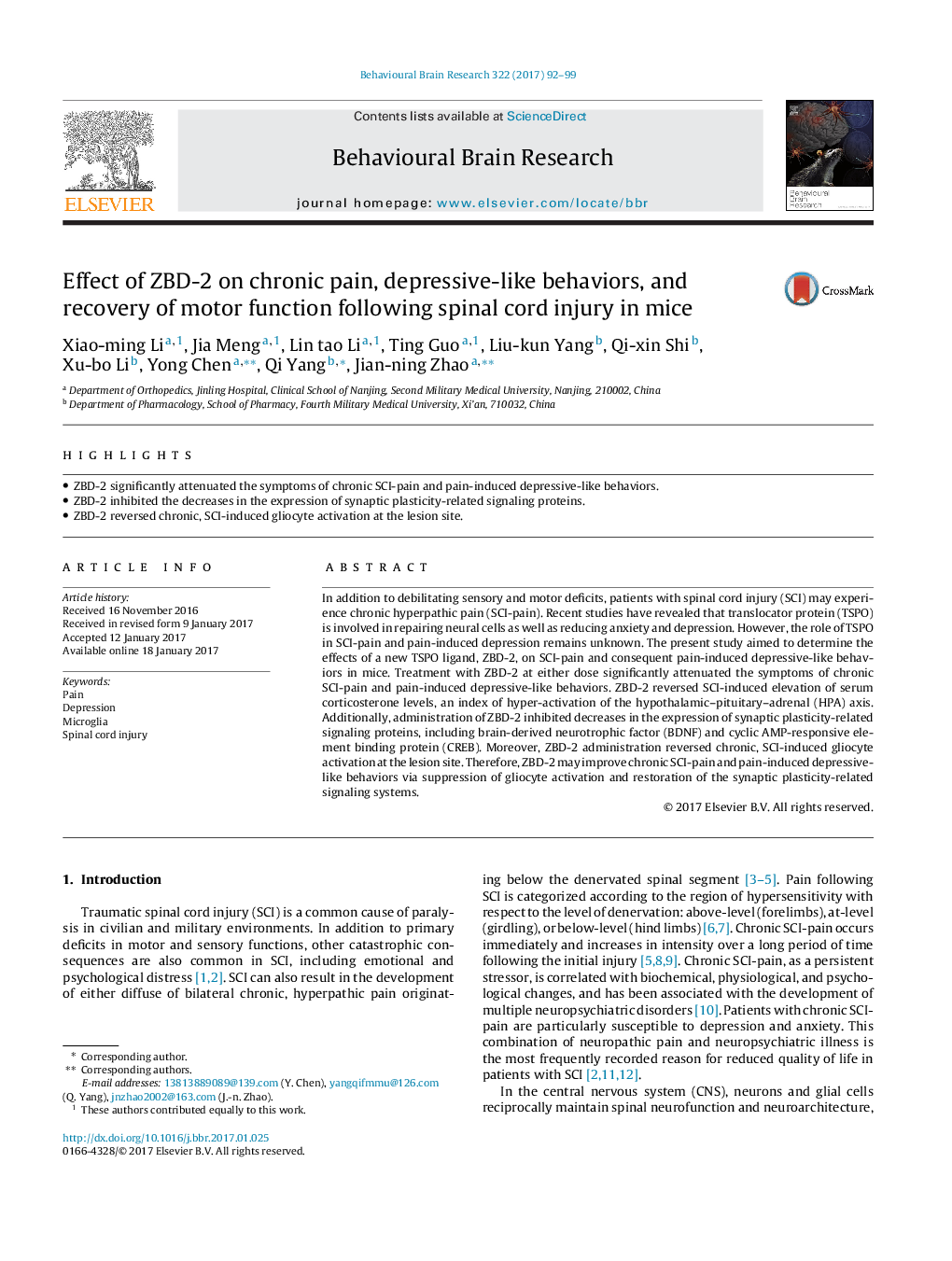| Article ID | Journal | Published Year | Pages | File Type |
|---|---|---|---|---|
| 5735518 | Behavioural Brain Research | 2017 | 8 Pages |
Abstract
In addition to debilitating sensory and motor deficits, patients with spinal cord injury (SCI) may experience chronic hyperpathic pain (SCI-pain). Recent studies have revealed that translocator protein (TSPO) is involved in repairing neural cells as well as reducing anxiety and depression. However, the role of TSPO in SCI-pain and pain-induced depression remains unknown. The present study aimed to determine the effects of a new TSPO ligand, ZBD-2, on SCI-pain and consequent pain-induced depressive-like behaviors in mice. Treatment with ZBD-2 at either dose significantly attenuated the symptoms of chronic SCI-pain and pain-induced depressive-like behaviors. ZBD-2 reversed SCI-induced elevation of serum corticosterone levels, an index of hyper-activation of the hypothalamic-pituitary-adrenal (HPA) axis. Additionally, administration of ZBD-2 inhibited decreases in the expression of synaptic plasticity-related signaling proteins, including brain-derived neurotrophic factor (BDNF) and cyclic AMP-responsive element binding protein (CREB). Moreover, ZBD-2 administration reversed chronic, SCI-induced gliocyte activation at the lesion site. Therefore, ZBD-2 may improve chronic SCI-pain and pain-induced depressive-like behaviors via suppression of gliocyte activation and restoration of the synaptic plasticity-related signaling systems.
Related Topics
Life Sciences
Neuroscience
Behavioral Neuroscience
Authors
Xiao-ming Li, Jia Meng, Lin tao Li, Ting Guo, Liu-kun Yang, Qi-xin Shi, Xu-bo Li, Yong Chen, Qi Yang, Jian-ning Zhao,
